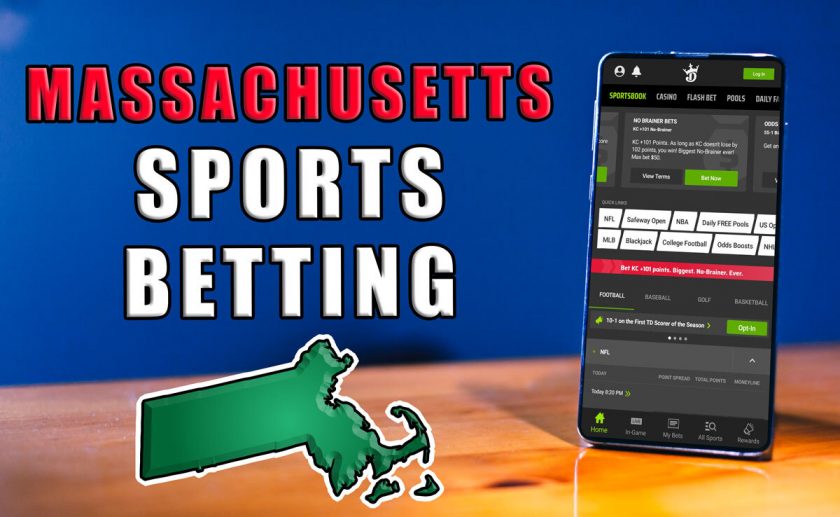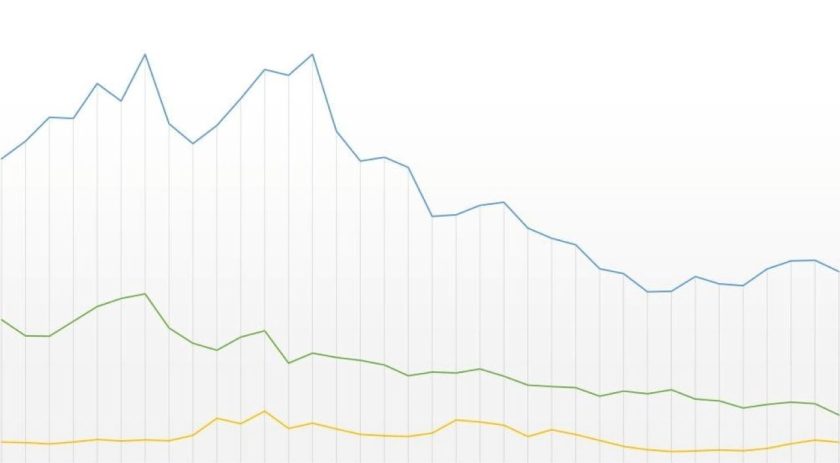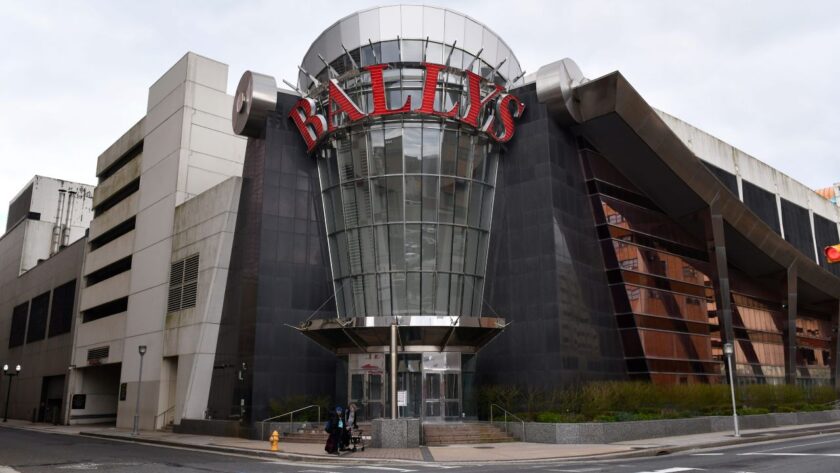Massachusetts Lawmakers Wade Back into Sports Betting Debate During 6-hour Hearing

The debate on Massachusetts sports betting is back in a big way.
The Joint Committee on Economic Development and Emerging Technologies held a special 6-hour session today to hear sports betting testimony from lawmakers, industry experts, casino representatives and front-office leaders of Massachusetts professional sports franchises.
A whopping 19 sports betting bills were submitted to the joint committee and a number of bill sponsors discussed the details of their plans during the hearing.
Massachusetts is Losing Sports Betting Revenue to Bordering States
Senator Paul R. Feeney (D – Bristol and Norfolk) kicked off the proceedings to discuss his bill, S263, which would legalize sports betting and include betting on college sports.
Massachusetts is losing revenue to bordering states that have already legalized sports betting, such as Rhode Island and New Hampshire, he said. Residents cross the state border every single day to spend money in other states and support businesses outside of Massachusetts.
“One of our chief exports is Massachusetts gaming revenue to Rhode Island,” he said.
It would be a common theme today among representatives offering testimony. The legalization of sports betting would not just benefit state casinos, but also support local retail businesses and restaurant owners. Potential revenue leaving Massachusetts everyday, Representative Shawn Dooley (R – 9th Norfolk) said, as residents gamble and place bets in casinos in bordering states that have already legalized sports betting.
“By legalizing sports betting, we’ll be putting our casinos on a level playing field with Rhode Island casinos,” Dooley said.
Bring Massachusetts Sports Betting into the Light
State Representative David Biele (D – 4th Suffolk District), said sports betting is already ongoing in Massachusetts, but on the black market. If the state legalizes sports betting it can help safeguard consumers from offshore betting companies by regulating the industry.
“These transactions are happening under darkness, and this bill proposes to bring it into the light so we can protect consumers and make sure we’re growing our economy,” he said.
Biele’s bill, H502, would create three separate classes of sports betting licenses. One license would be specific for casinos interested in in-person and online sports betting, the second would be for racetracks offering in-person sports betting and the third license would be available for online sports betting through other commission approved platforms.
Representative Orlando Ramos (D – 9th Hampden) and Senator Adam Gomez (D – Hampden) spoke to the importance of offering sports betting advantages not only to casinos, but also to minority owned businesses in the state.
Ramos noted his bill, H531, and Gomez’s accompanying bill, S264, are the only presented bills with specific language directing the gaming commission to create regulations that take into account diversity, equity and inclusion for “black and brown owned businesses.”
“We can’t monopolize sports betting to casinos,” Ramos said.
The two bills also include sports betting kiosk options for operators to place in retail establishments. These would not require customers to link a credit card or create an account to participate, Ramos said.
Professional Sport Reps in Favor of Massachusetts Sports Betting
In addition to bill sponsors, Massachusetts professional sport franchise representatives and league officials offered testimony in support of legalized sports betting.
Sam Kennedy, President and CEO of the Boston Red Sox, said the franchise is fully supportive of legalized sports betting in the state. Legalized, regulated sports betting offers teams a safe way to engage fans.
Rich Gotham, President of the Boston Celtics, supported the state’s efforts to build a strong, legalized sports betting industry.
“We can benefit indirectly from sports betting, through increased fan engagement and sponsorships dollars with sports betting companies,” Gotham said.
When directly asked if sports betting incidents with athletes have seen an uptick in the past several years, Alexandra Roth, Associate VP and Senior Associate Counsel of the NBA, Jonathan Nabavi, VP, Public Policy and Government Affairs for the NFL, and David Miller, Vice President & Assistant General Counsel at the PGA, all testified that to their knowledge there have been no increases in their leagues.
Ayesha Molino, Senior VP for MGM Resorts, Cory Fox, Vice President, Government Affairs & Product Counsel for FanDuel, Jeff Morris, VP of Penn National Gaming, and Jason Robins, cofounder and CEO of DraftKings, all offered testimony urging Massachusetts lawmakers to legalize sports betting.
“In the two years since I last testified before this committee about this matter, the benefits of legalization for states and consumers have been borne out across the country. Legalization is a common-sense measure that increases state revenue, creates jobs, protects consumers from a thriving market of illegal websites and mobile apps, and captures business that Massachusetts is currently losing to neighboring states with legal betting,” Robbins said.
Further Details on Massachusetts Sports Betting
Several other bill sponsors and industry representatives offered testimony at the special hearing. Here are some of the details:
- Morris of Penn National Gaming suggested between 10 to 15 skins for Massachusetts.
- State Senator Ed Kennedy (D – 1st Middlesex) urged the committee to dedicate 2% of sports betting revenue to support Massachusetts performing arts centers.
- State Senator Brendan P. Crighton (D – 3rd Essex) presented details on his bill, S257. His bill includes several types of licenses for casinos, retail entities and online sports betting. Its 15% tax rate, he said, would likely result in $61.3 million annually for the state.
- Representative Bradford Hill (R – 4th Essex) submitted six potential bills to the committee. Each bill includes a fund to collect sports betting revenue for Massachusetts education, transportation and healthcare.
- Senator Michael D. Brady (D – 2nd Plymouth and Bristol) presented his bill, S254. Brady’s bill will create sports betting revenue trust funds to support the state workforce, restaurants, local aid, healthcare, player’s benevolence and youth development achievement.
- Secretary of Housing and Economic Development Mike Kennealy presented details on bill H70. H70 is sponsored by Massachusetts’s Governor Charles D. Baker, a longtime proponent of legalized sports betting. The bill is modeled around New Jersey’s program, Kennealy said, and would allow current casinos to be eligible for licenses to conduct in-person and online sports betting. It would establish a sports betting license application process for interested entities not currently affiliated with state casinos.
- Massachusetts Gaming Commission Chief Financial Officer Derek Lennon said a revenue study on sports betting has not yet been conducted, but estimates from other states lead him to believe Massachusetts could see between $25 million to $40 million annually in tax revenue.
- Jerry York, the men’s ice hockey coach at Boston College, urged the committee to consider a ban on college sports betting. He noted that Boston College doesn’t have the money to safeguard its student athletes from sports betting in the same way the NBA, NHL, MLB and NFL does.
- Bob Greenlee of Tusk Strategies urged the committee to also include betting on eSports in its sports betting plan.
- Joe Briggs, a representative for the NFL Players’ Association, urged the committee to ensure necessary safeguards are in place for athletes to protect them from fans who may be angry about outcomes of a bet. He said the necessary law enforcement tools should be available to make sure athletes are safe.
Covering regulatory developments in online gambling throughout this fine country.






